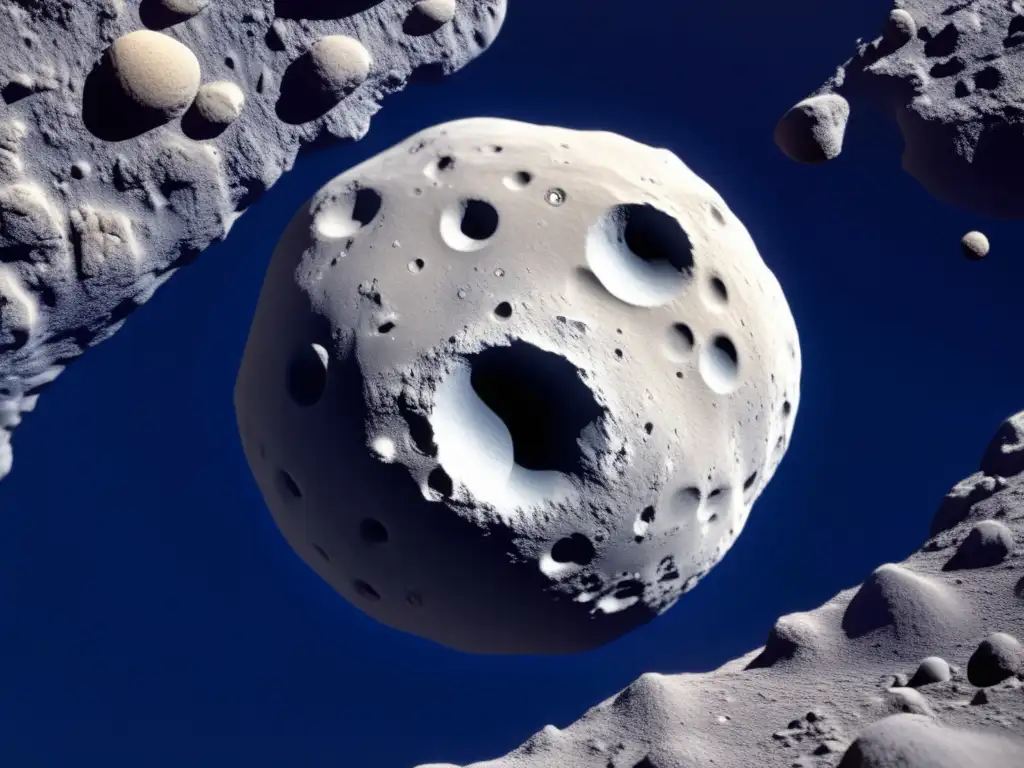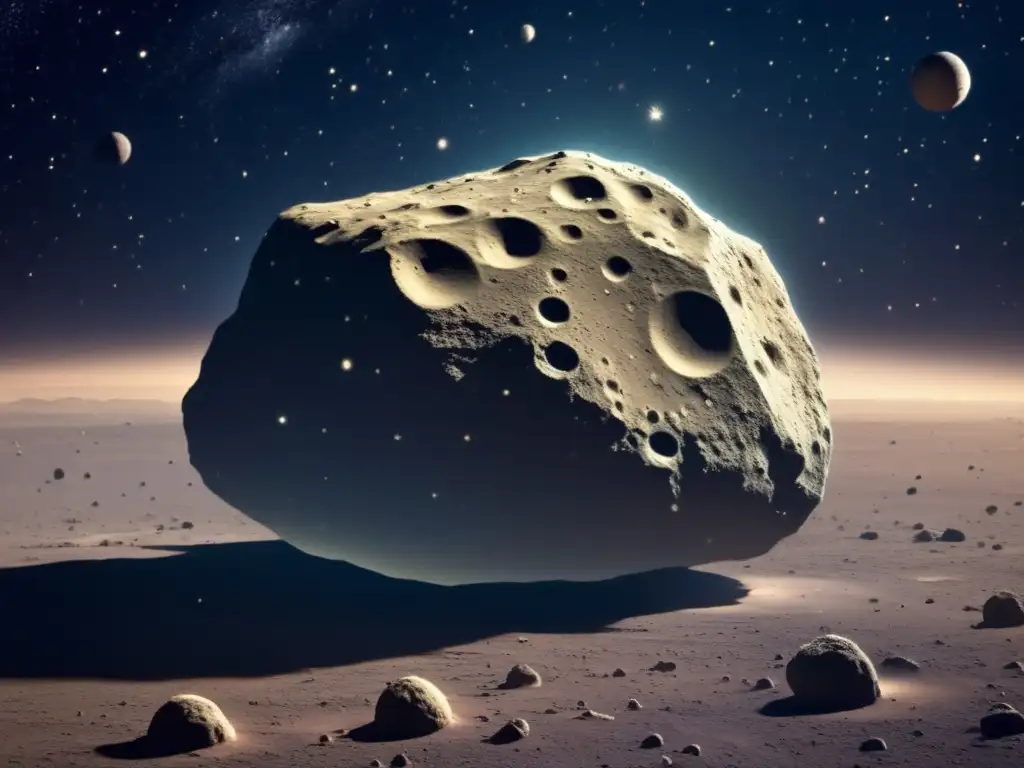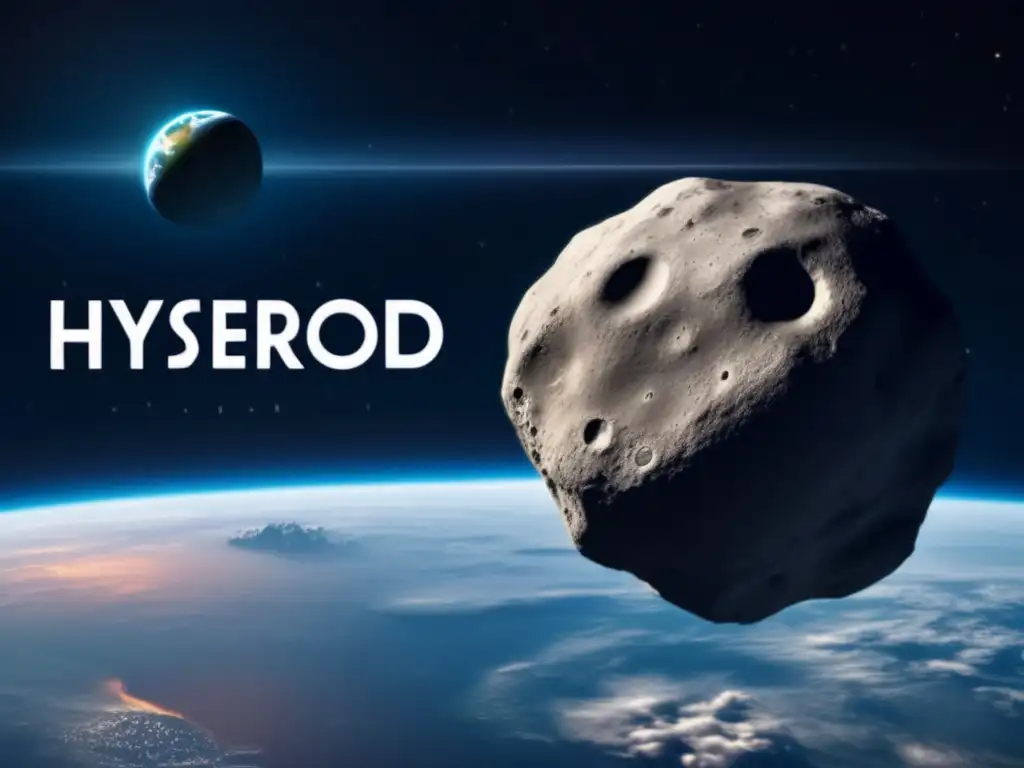Asteroid Hylas: The Story Behind The Name

Introduction
Asteroids, the small rocky bodies that orbit the Sun, have fascinated astronomers and scientists for centuries. These celestial objects hold valuable insights into the formation and evolution of our solar system. One such asteroid with an intriguing history is Asteroid Hylas. In this article, we will explore the story behind the name of Asteroid Hylas and delve into its significance in the study of asteroids.
The Mythological Connection

Hylas: A Beloved Companion
In Greek mythology, Hylas was a young man who served as the companion of the hero Heracles, also known as Hercules. Hylas was described as exceptionally beautiful and possessed great charm. He was known for his gentle nature and was beloved by both his companions and the gods.
The Tale of Hylas' Disappearance
During the quest for the Golden Fleece, Hylas went to fetch water from a spring. However, he was lured away by nymphs who were captivated by his beauty. Hylas was never seen again, leaving Heracles heartbroken and distraught. This tragic tale has been portrayed in various works of art and literature throughout history.
The Naming of Asteroid Hylas
Asteroid Hylas, discovered on April 16, 1916, by German astronomer Max Wolf, was named in honor of the mythological figure. The name was chosen to acknowledge the enduring beauty and mystery associated with Hylas and to pay homage to the rich cultural heritage of ancient Greece.
Asteroid Hylas: Scientific Significance

Orbital Characteristics and Composition
Asteroid Hylas belongs to the main asteroid belt located between the orbits of Mars and Jupiter. Its orbit takes it around the Sun every 4.11 years. Based on spectroscopic analysis, scientists believe that Asteroid Hylas is composed mainly of rocky materials such as silicates and metals, similar to other asteroids in the region.
Contributing to Our Understanding of Asteroids
Studying asteroids like Hylas provides valuable insights into the history and composition of our solar system. By analyzing their spectra, astronomers can determine the presence of certain minerals and compounds, helping to unravel the story of their formation and potential role in the delivery of water and organic molecules to Earth.
Potential for Future Exploration
As space exploration advances, there is a growing interest in sending missions to study and characterize asteroids up close. The knowledge gained from studying asteroids like Hylas can inform future missions, including asteroid mining endeavors and even the mitigation of potential asteroid impacts on Earth.
Impact on Mythology and Culture

Inspiration for Art and Literature
The story of Hylas has captivated artists and writers throughout history. It has been depicted in paintings, sculptures, and literary works, with each artist adding their own interpretation and emotion to the story. The myth continues to inspire creative endeavors and serves as a testament to the enduring power of ancient mythology.
Symbolism of Beauty and Loss
Hylas' tale represents the fleeting nature of beauty and the human experience of loss. It explores themes of desire, longing, and the transient nature of happiness. The story of Hylas serves as a reminder of the impermanence of life and the emotional impact that beauty can have on our existence.
Relevance in Modern Society
Mythology continues to play a significant role in contemporary culture. The story of Hylas resonates with themes of love, longing, and the search for deeper meaning, making it relatable to people of all backgrounds. It serves as a reminder of the universal nature of human emotions and the power of storytelling to connect us across time and space.
Frequently Asked Questions

-
What is the main asteroid belt?
The main asteroid belt is a region located between the orbits of Mars and Jupiter where numerous asteroids are found.
-
Why was Asteroid Hylas named after a mythological figure?
Asteroids are often named after various figures from mythology, literature, and history to acknowledge their cultural significance and add a touch of symbolism to these celestial bodies.
-
Why do scientists study asteroids like Hylas?
Studying asteroids provides insights into the formation of our solar system and the potential delivery of essential resources to Earth. Additionally, understanding asteroids helps scientists assess potential risks of asteroid impacts and develop strategies to mitigate them.
-
Is there any ongoing mission to study Asteroid Hylas?
As of now, there are no specific missions planned to study Asteroid Hylas. However, ongoing and future missions to the asteroid belt may provide valuable information about this intriguing celestial body.
-
How can asteroids impact our daily lives?
Asteroids have the potential to impact Earth, posing a risk to human civilization. By studying and monitoring asteroids, scientists can better understand their behavior and develop strategies to protect our planet.
Conclusion
Asteroid Hylas, named after the mythological figure from Greek legends, represents the intersection of science, mythology, and culture. Its story serves as an enduring reminder of the beauty and transience of human existence. By studying asteroids like Hylas, we gain valuable insights into the history and composition of our solar system. Additionally, the tale of Hylas continues to inspire artists and writers, connecting us to the timeless power of ancient myths. As we delve further into the exploration and study of asteroids, let us continue to appreciate the rich stories and significance they bring to our understanding of the universe.
We encourage you to share your thoughts and experiences in the comments section below. Be sure to visit www.asteroidrealm.com for more informative articles on asteroids. Thank you for joining us on this journey of discovery and exploration.
Additional Resources

For further reading on asteroids, mythology, and their cultural significance, consider exploring the following resources:
- NASA's Asteroid Basics
- Britannica's Asteroid Encyclopedia
- The Metropolitan Museum of Art: Greek Mythology
 Understanding The Unique Features Of Asteroid Zephyr
Understanding The Unique Features Of Asteroid Zephyr What We Know About Asteroid Thetis
What We Know About Asteroid Thetis The Role Of Asteroid Thia In Astronomy
The Role Of Asteroid Thia In AstronomyIf you want to discover more articles similar to Asteroid Hylas: The Story Behind The Name, you can visit the Asteroid Profiles category.
Leave a Reply

Articulos relacionados: